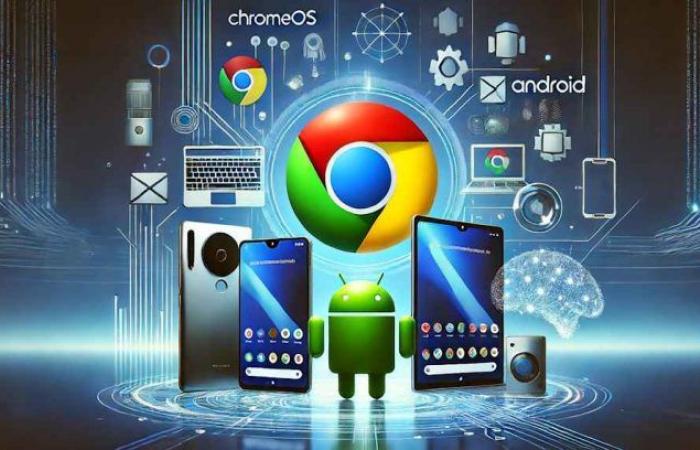Google has announced that it is starting a long-term project aimed at migrating most of the ChromeOS subsystems (including the Kernel) to those of Android.
Unconvinced of the benefit of having two different systems, Google has been imagining for years all kinds of strategies to bring Android and ChromeOS closer together. For a while, the idea was to replace them with a new OS, Fuchsia OS. But it is not easy to replace Android which has established itself well on smartphones/tablets and now benefits from support from the automotive world. Google ultimately preferred to integrate Android App compatibility on Chromebooks.
This week, Google announced its decision to replace many of ChromeOS’s subsystems (generally based on classic Linux components) with Android’s own subsystems (which also derive from Linux but evolved relatively separately).
This decision to embed more Android components at the heart of ChromeOS brings the Chromebook OS a little closer to that of mobile terminals. And the motivation for such a rapprochement comes down to two letters: AI, of course.
“ Integrating the Android-based tech stack into ChromeOS will allow us to accelerate the pace of AI innovation at the heart of ChromeOS, simplify engineering efforts, and help different devices like phones and accessories to work better with Chromebooks. At the same time, we will continue to deliver the unmatched security, consistent look and feel, and broad management capabilities that users, businesses, and schools love in ChromeOS.” explains those responsible for ChromeOS at Google.
The benefit of making the two systems converge a little more is obvious for Google: staff savings, time savings, and money savings. Fewer different codes to maintain, less complexity, more uniformity.
In practice, ChromeOS will therefore gradually evolve towards the system layers of Android until adopting the Linux Android Kernel. To put it simply, ChromeOS will ultimately become a variation of Android to allow Chromebooks to more quickly adopt the innovations and AI developed by Google for smartphones.
This unification will not happen in a day but starts now with the “Bluetooth stack” which, in version 122 of ChromeOS, will now be “Fluoride” (developed specifically for Android) and no longer the traditional BlueZ stack from Linux. Known under the internal name of Project Floss, this integration of the Android Bluetooth stack on ChromeOS will be carried out as open source and could ultimately be exploited by Linux distributions.
Also read:
Google acquires Cameyo and its Windows software virtualization technology for Chromebooks
Google I/O 2024: What’s new for Android 15?
Google formalizes its ChromeOS Flex for old PCs and Macs
The penguin is very happy! Linux Desktop finally exceeds… 4% market share






